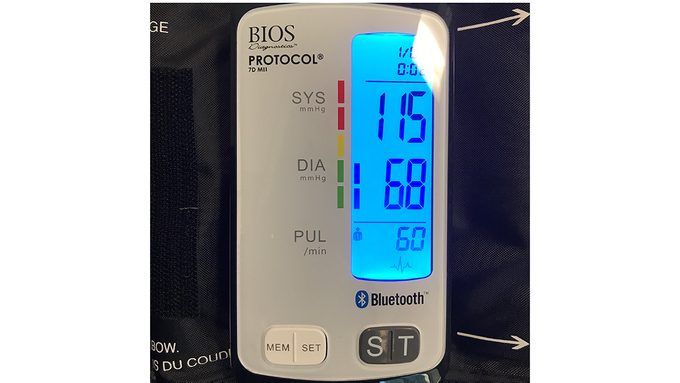What Do The Numbers Mean When You Get Your Blood Pressure Checked?
You’ve checked your blood pressure. Now what? We break down what those numbers mean and the conversation you should have with your doctor.

The 411 on blood pressure numbers
You’ve seen blood pressure checkers at pharmacies. Your physician does this quick test at your doctor’s appointment. You might even have a family member or friend who has a blood pressure monitor at home and you’re wondering if you should too. Often, I’ll use my dad’s just because I’m curious. So, it’s no surprise we’re both interested in what the blood pressure numbers mean.
Dr. Nadia Khan, president and chair of the board, Hypertension Canada, shares with us a quick breakdown:
“The systolic blood pressure – the top number – is the amount of pressure or force your blood exerts on your blood vessel walls when your heart beats,” says Dr. Khan. “The diastolic blood pressure – the bottom number – is the amount of pressure or force your blood exerts on your blood vessel walls in between heart beats.”
Together, these numbers show your health care provider if there’s any issues. Note that the numbers are expected to be lower when you check your blood pressure at home. I did the test at my desk with a monitor sent for me to test, and my blood pressure numbers are 115/68 mmHg.
Most people, including those with kidney disease
Less than 140/90 mmHg at the doctor’s office
or
Less than 135/85 mmHg at home
“In adults, blood pressure that is 140/90 mmHg or higher in the doctor’s office 135/85 mmHg or higher at home – is considered high,” says Dr. Khan. “In those with diabetes, blood pressure that is 130/80 mmHg or higher is considered high.”
If your blood pressure is considered “high” you may be at risk for hypertension, which can be linked to heart failure, heart disease, kidney disease and more. And hypertension can be caused by lifestyle issue, such as physical activity, smoking and diet, as well as stress, kidney disease and thyroid issues, and more.
If your blood pressure is “low,” like mine, that might mean you are at risk for hypotension. People who are active and fit tend to have low blood pressure. It becomes a worry if it’s low in an unhealthy way that puts you at risk for heart failure, anemia, Parkinson’s and more.
It’s pretty amazing that this little, quick test can tell us so much. Just with those blood pressure numbers.

BIOS Diagnostics Protocol 7D MII, $139.99 at biosmedical.com.




